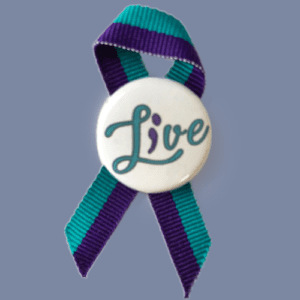Date/Time
Date(s) - 09/06/2020 - 09/12/2020
12:00 am
Categories
 Every year the nation asks that everyone take the time to better understand suicide and how we can help this preventable end to one’s life. But it is so important to remember every death by suicide is a human being. A unique person loved by many others who are left to deal with such tragic loss. These are people not numbers.
Every year the nation asks that everyone take the time to better understand suicide and how we can help this preventable end to one’s life. But it is so important to remember every death by suicide is a human being. A unique person loved by many others who are left to deal with such tragic loss. These are people not numbers.
Here at The Mental Health Center of Greater Manchester we take this very seriously. For as long as we have been in existence, improving the lives of people suffering from mental illness has been at the forefront of our work. This includes helping those who struggle with thoughts and behaviors of suicide as well as helping those left to deal with the loss of loved ones encountered by suicide. To this call, we have established a Zero Suicide Policy in our agency. This policy means that all staff are trained in suicide awareness and how to intervene in all areas of treatment in our center’s programs. That careful planning goes on in the transfer and delivery of all care. While this has helped greatly to decrease the number of those who die from suicide in our care, the community and this state face serious and larger issues when it comes to this matter.
Looking within the state of New Hampshire, Suicide is the 2nd leading cause of death among people aged 10-34. We also know that suicide rates are of concern in older age groups as well. We always try to better understand this issue and help to make the public aware of this public health crisis; however, the numbers of lost lives do not seem to be going down with any significance. These losses of life are just the tip of the iceberg when it comes to suicide in the United States.
It is estimated that the in 2018, American deaths related to suicide was 48,344 and almost one quarter of those were service men and women. Mind you many people die as a result of suicide and their death is not recorded as such. This is due to many reasons but the major reason is that “death as a result of suicide” was not charted as the cause of death. This is changing in many states and hopefully in the future we will have a clearer understanding of the significance. To put the 2018 U.S. statistic in perspective, if we were to combine the populations of Bedford and Goffstown, the number would equal 40,802. Think for a moment the loss equated with all of the lives of these two New Hampshire towns and many more. Think of all the families, loved ones and friends as well.
So what do we do as a nation, a community, or an individual to help save these lives? First we need to feel comfortable talking about suicide. It is really OK to talk about it! In case you are wondering there has been no evidence that talking about suicide causes someone to act on it. In fact, it is the lack of worry of talking about it that can lead to more harm. The best way to help everyone is to openly talk about it.
Second, become aware of some often similar signs. While they in themselves do not necessarily mean someone is contemplating ending their life they are often heard or seen.
- Withdrawing from friends, family or society.
- Dramatic changes in mood.
- Anxiety, agitation, difficulty with sleep or eating.
- Feeling of no reason to live or having no sense of purpose in life.
- Increasing alcohol or drug use.
- Rage, anger, seeking revenge.
- Talking or writing about death, dying or suicide.
- Looking for ways to kill himself or herself.
- Feeling trapped, like there is no way out
- Giving away personal items.
- Saying directly that they are going to kill himself or herself
- Knowing them as you do and just questioning something may be wrong.
Taking the time to talk with this person. Finding a comfortable place for you and them is the start. Knowing that this is an uncomfortable conversation, but often leads to that person feeling more connected is what matters. Giving that person the feeling that someone cares is important and very often breaks the thoughts at least for those moments.
What is left is making sure the person gets the help they need and as much support as they can handle till the professional supports are there.
These are difficult situations to deal with. But we all can ask, we all can support and we can all make a call. The Mental Health Center of Greater Manchester Mobile Crisis Team is here for you. Call (800) 688-3544.


